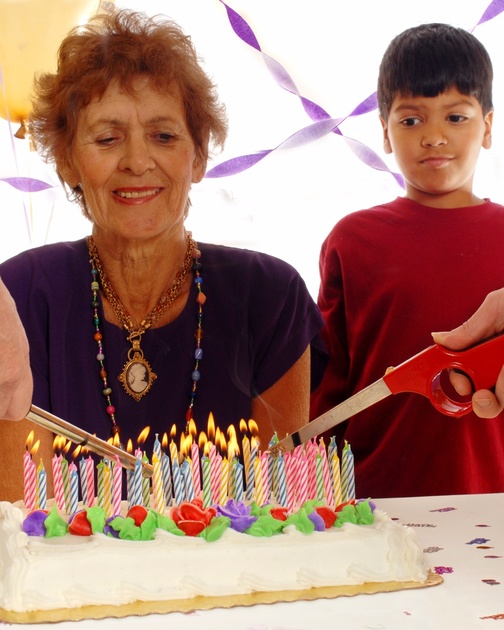
Dear Therapist:
My mother-in-law has been fighting a very serious illness for the last few years. At this time the doctors say that they have no more treatments to offer her. I don't think my husband really accepts the implications of this. My children have always had a close relationship with their grandmother and are always asking when she is going to get better. We have been very positive throughout this but now I am not sure how to approach it with them. I feel like I should prepare them but my husband is encouraging them to daven and telling them that with Hashem's help she will get better soon. Can you please give me some guidance as to how to proceed?
Response:
Your question is an important one that will affect many of us at one time or another. It sounds as if your husband and you are both concerned with your children’s reactions to your mother-in-law’s illness. Your husband seems to be taking a short-term approach, worried about the kids’ immediate reaction to news that their grandmother’s illness is terminal. He may also be in denial of some sort. As you mentioned, he doesn’t appear to accept the implications of the situation. This may mean that he has trouble accepting his mother’s impending death.
You seem to be more concerned with the emotional effect that a sudden death can cause. You want to begin preparing them for this eventuality. Also, if your kids sense that the situation is more serious than they are being led to believe, this can lead to more consternation than being told the truth. Fear of the unknown can often be more anxiety-provoking than the reality.
Another concern may be your children’s feelings about being misled. If they may feel that they were lied to, and that they should have been told the truth, they may become quite upset. If they sense the truth and know that they are not being told the truth, it can lead them to distrust you.
On the one hand, kids tend to be more intuitive than we give them credit for. They might have a much better idea of the seriousness of your mother-in-law’s condition than you believe. In addition, children are often more resilient than we expect. Sometimes our nervous anticipation of a child’s response to a traumatic event leads to the anticlimactic emotional equivalent of a shrug. On the other hand, it can be difficult to gauge the effect of traumatic news on anyone’s emotions—and this is especially so with young children. The simple fact that a child doesn’t appear to be bothered by something doesn’t necessarily mean that there is no emotional effect.
Of course, I’m speaking generally. Your decision will be very much dependent on factors like the ages of your children, their maturity levels, the degree to which they seem to recognize more than they are being told, and the types of emotional relationships that they have with your mother-in-law. It might be a good idea to discuss your concerns with someone who knows your family, but can be more objective.
-Yehuda Lieberman, LCSW
psychotherapist in private practice
Brooklyn, NY
author of Self-Esteem: A Primer
www.ylcsw.com / 718-258-5317
Disclaimer
The contents of this blog, including text, graphics, images, and other material are for informational purposes only. Nothing contained in this blog is, or should be considered or used as, a substitute for professional medical or mental health advice, diagnosis, or treatment. Never disregard medical advice from your doctor or other qualified health care provider or delay seeking it because of something you have read on the Internet, including on this blog. We urge you to seek the advice of your physician or other qualified health professional with any questions you may have regarding a medical or mental health condition. In case of emergency, please call your doctor or 911 immediately. The information contained on or provided through this blog is provided on an "as is" basis, without any warranty, express or implied. Any access to this blog is voluntary and at your own risk.

 Previous
Previous

